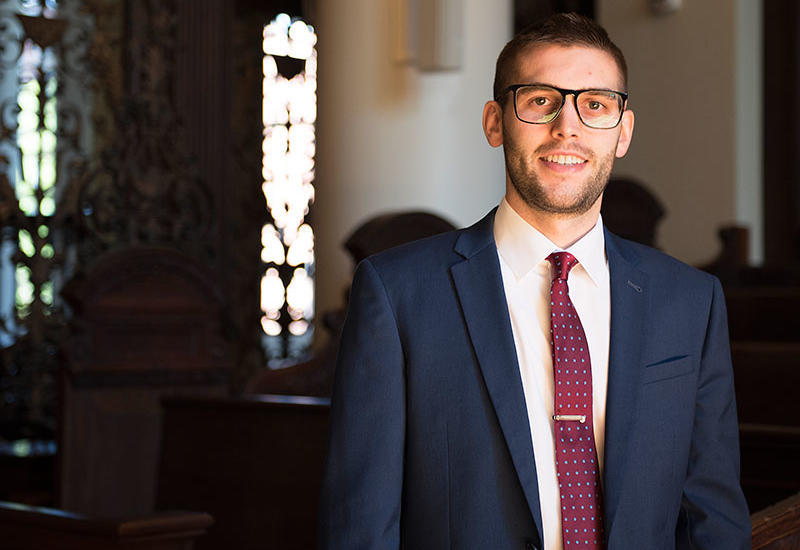
Morning Prayers address by Westley Conn, Ministry Fellow, for the Memorial Church.
My reading for this morning is longer than most, but the peculiarity of its content warrants a reading at Morning Payers.
The Frisian pietist, Jaspar Danckaerts, in search of a proper location in North America for his quietist community, known as the Labadists, recorded the following in his journal as he traveled throughout present-day Massachusetts:
Friday, July 12, 1680. We reached Cambridge about eight o’clock. It is not a large village, and the houses stand very much apart. The college building is the most conspicuous among them. We went to it, expecting to see something unusual, as it is the only college, or would-be academy of the Protestants in all America, but we found ourselves mistaken. In approaching the house we neither heard nor saw anything mentionable; but, going to the other side of the building, we heard noise enough in an upper room to lead my comrade to say, “I believe they are engaged in disputation.” We entered and went up stairs, when a person met us, and requested us to walk in, which we did. We found there eight or ten young fellows, sitting around, smoking tobacco, with the smoke of which the room was so full, that you could hardly see; and the whole house smelt so strong of it that when I was going up stairs I said, “It certainly must be also a tavern.” We excused ourselves, that we could speak English only a little, but understood Dutch or French well, which they did not. However, we spoke as well as we could. We inquired how many professors there were, and they replied not one, that there was not enough money to support one. We asked how many students there were. They said at first, thirty, and then came down to twenty; I afterwards understood there are probably not ten. They knew hardly a word of Latin, not one of them, so that my comrade could not converse with them. They took us to the library where there was nothing particular. We looked over it a little. They presented us with a glass of wine. This is all we ascertained there. The minister of the place goes there morning and evening to make prayer, and has charge over them; besides him, the students are under tutors or masters.
For being “a small college in Cambridge,” this University has a prestigious place among institutions of higher learning. It enjoys a long line of distinguished graduates like, Increase Mather, W. E. B. Dubois, and Elena Kagan. Heads of state, billionaires, and Rhodes Scholars are common fixtures here. The University boasts the largest academic library in the world. Harvard has become synonymous with success.
Yet, despite the collective accomplishments of this institution, Harvard, in 1680, was nearly indistinguishable from a tavern. The journal entry of Danckaerts reminds us that success is fleeting, and therefore so also is failure. How did this place get through the changes and chances of life? What was it that brought the “would-be academy of the Protestants” from a place of paucity to a position of prominence? In looking beyond the honors and accolades of individuals and institutions, we learn that success might have more to do with the metaphysical rather than any sort of material gain.
To this point, Proverbs 11:2 directs us in the way of success: “When pride comes, then comes disgrace; but wisdom is with the humble.” Humility goes a long way in aligning us with success. When we are humble we recognize that our success is inextricably connected to the success of our neighbor.
One thing that remains the same today as it did in 1680 is Harvard’s tradition of prayer. Though it is no longer compulsory, prayer is one sure way of fostering humility and staving off pride.
Let us pray: O God, be with us in our learning; help us to see past the prestige of degrees to the sacramentality of education, so that each day we might achieve humility. Amen.
